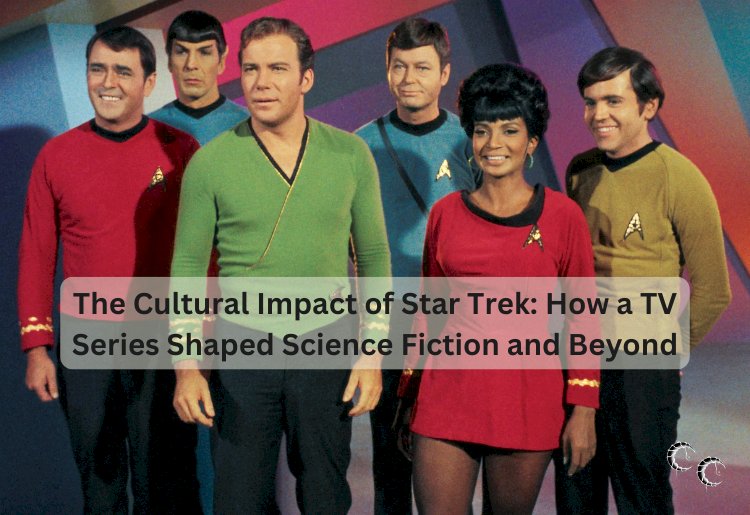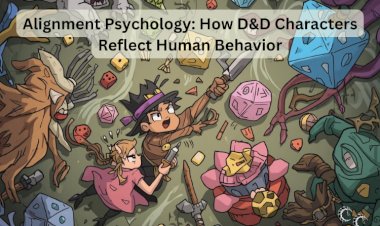The Cultural Impact of Star Trek: How a TV Series Shaped Science Fiction and Beyond

When Star Trek premiered on September 8, 1966, few could have predicted the monumental impact it would have on the world. A show that was originally struggling to find an audience during its three-season run has since become one of the most influential franchises in pop culture history. Star Trek wasn’t just a science fiction television show; it was a bold experiment in how to imagine a better future, all while exploring complex social, political, and philosophical issues through the lens of space exploration.
Over the decades, Star Trek has evolved into a multi-generational phenomenon, transcending the boundaries of its original medium and influencing everything from technological innovation to societal movements. But what makes Star Trek so much more than a show? How did it leave an indelible mark on science fiction, entertainment, and even real-world technology? Let’s explore the profound cultural impact of Star Trek and how it continues to shape our world.
The Vision of the Future: Optimism in a Time of Turmoil
At its core, Star Trek offered something rare in 1960s television: an optimistic vision of the future. The show was born during a time of social and political unrest in the United States—amid the civil rights movement, the Cold War, and the space race—and yet, it envisioned a future where humanity had transcended its divisions, with races and nations working together for the greater good. The Enterprise, the show's starship, was a microcosm of this utopia, where humans, aliens, and different cultures coexisted, each contributing to a peaceful and productive society.
This utopian future wasn’t just about exploring the unknown; it was about overcoming societal issues that were all too real in the present day. For example, Star Trek addressed race relations in its casting choices and the themes it explored. The show broke boundaries with its diverse cast, featuring African-American actress Nichelle Nichols as Lieutenant Uhura, one of the first African-American women to be portrayed in a major role on television, and George Takei as Lieutenant Sulu, a Japanese-American actor portraying a respected Starfleet officer. The iconic kiss between Captain Kirk and Uhura in the 1968 episode "Plato's Stepchildren" was groundbreaking, showcasing a racially integrated relationship at a time when racial tensions were high in the United States.
In many ways, Star Trek used its setting in the future as a mirror to examine the problems of the present—racism, sexism, war, and intolerance—and show audiences a path toward a more enlightened and inclusive society. The hope of a future where humanity had overcome these divisions was a powerful message, and it resonated deeply with viewers.
A Blueprint for Scientific Exploration
Star Trek didn’t just influence the cultural landscape; it also had a lasting impact on the world of science and technology. The show’s imaginative gadgets, futuristic technologies, and innovative ideas sparked the imaginations of engineers, inventors, and scientists. Concepts like the “communicator” (which later inspired the flip phone), the “replicator” (which prefigured 3D printers), and even the “tricorder” (a portable diagnostic tool that resembles modern medical devices) have inspired real-world innovations.
NASA, in particular, has long been associated with Star Trek. The space agency’s many missions and initiatives have drawn direct inspiration from the show. The naming of the Enterprise space shuttle, for example, was a nod to the Star Trek legacy. The shuttle was named after the starship in recognition of the show’s impact on space exploration and its ability to inspire generations to look toward the stars.
Moreover, many scientists and engineers have cited Star Trek as a source of inspiration in their careers. Star Trek didn’t just present advanced technology; it presented the idea that human curiosity and ingenuity could unlock the secrets of the universe. This vision continues to drive real-world scientific research, from space exploration to medicine, and remains a key influence on the future of technology.
Cultural Representation and Inclusivity
One of Star Trek’s most enduring legacies is its role in shaping how diverse characters are represented in media. The show introduced a wide array of characters from different backgrounds and species, many of whom broke stereotypes and offered audiences a glimpse of what a truly inclusive society could look like. Lieutenant Uhura, for example, was a high-ranking officer on the Enterprise, holding a position of authority and respect. In addition to breaking racial barriers, Star Trek featured strong female characters, like Dr. McCoy’s medical officer, Dr. Elizabeth Dehner, and the indomitable Lieutenant Uhura, all of whom were competent professionals in a male-dominated field.
The show also featured characters who struggled with their own identities and backgrounds, like Spock, whose half-human, half-Vulcan heritage made him an outsider in both human and Vulcan society. This exploration of identity, belonging, and acceptance resonated with viewers of various backgrounds, and it gave voice to marginalized groups at a time when such representations were rare on television.
Beyond race and gender, Star Trek pushed the boundaries of representation with its portrayal of sexuality, politics, and personal agency. Later iterations of Star Trek would continue to explore issues such as the ethics of artificial intelligence, the moral dilemmas of space exploration, and the consequences of militarization and war, all while maintaining its commitment to a more inclusive and diverse future.
Expanding the Legacy: The Star Trek Universe
The original Star Trek series may have only lasted three seasons, but its impact has only grown over the years. The Star Trek franchise now spans multiple television series, films, books, comics, and fan conventions. The Star Trek universe has expanded to include a vast array of characters, stories, and worlds, each of which reflects different facets of human existence, from our hopes and dreams to our darkest fears.
The success of later series like Star Trek: The Next Generation, Deep Space Nine, Voyager, Enterprise, and the recent Star Trek: Discovery prove that the franchise's message of exploration, diversity, and hope resonates just as strongly today as it did in the 1960s. Even the Star Trek films, particularly the 2009 reboot directed by J.J. Abrams, introduced the franchise to new generations, keeping the legacy alive and relevant for future audiences.
Furthermore, Star Trek’s fanbase is one of the most dedicated and passionate in the world. The show’s devoted fans—many of whom call themselves “Trekkies” or “Trekkers”—have kept the franchise alive for decades, organizing conventions, creating fan fiction, and building communities centered around the shared love of the series. The Star Trek fandom has become a cultural force in its own right, showcasing the deep personal connection that the show fosters in its viewers.
The Enduring Legacy of Star Trek
Ultimately, Star Trek is much more than a science fiction show. It is a cultural touchstone that has shaped the way we think about technology, diversity, exploration, and the future. Through its imaginative storytelling, groundbreaking representation, and its optimistic vision of humanity’s potential, Star Trek has not only redefined the science fiction genre but has also shaped our understanding of what is possible—both in the stars and right here on Earth.
As we continue to explore the cosmos, the spirit of Star Trek—curiosity, compassion, and the belief that a better future is within reach—remains a beacon of inspiration for generations to come.






























